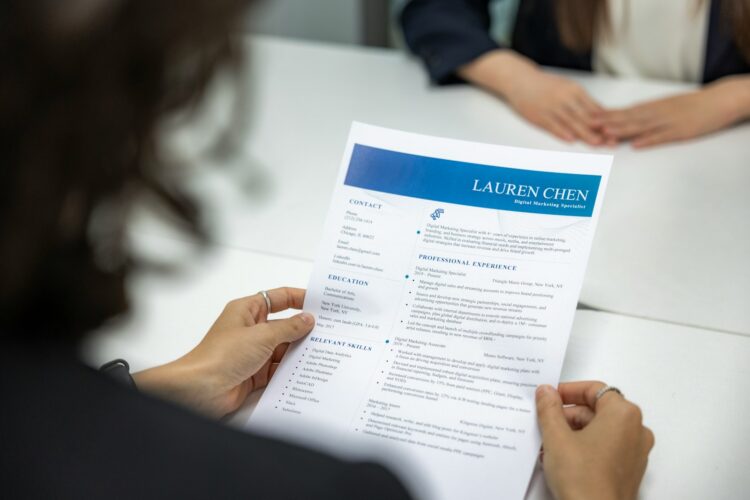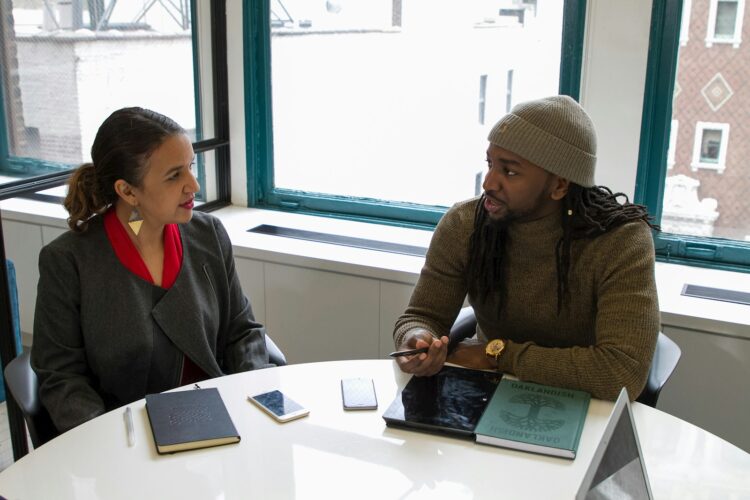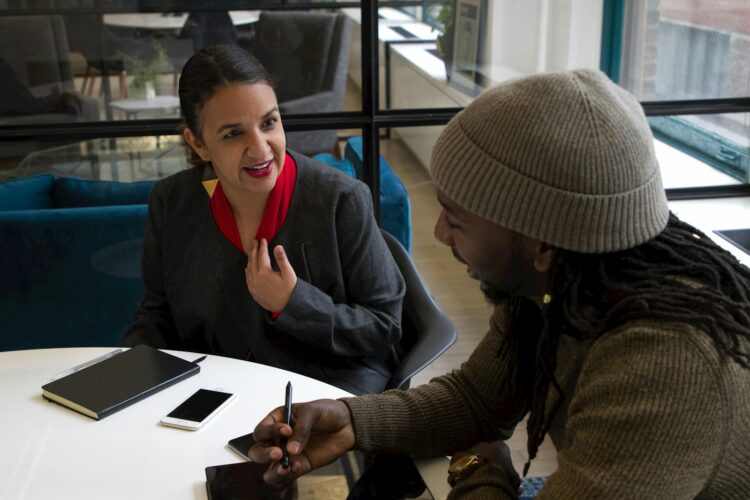
A job interview is often the first impression you make on an employer. Every word counts, and while it’s natural to feel nervous, certain phrases can instantly damage your chances. Sometimes people slip into casual language, oversharing, or negativity without realizing how it lands. To put your best foot forward, here are 15 things you should never say in a job interview — and what to say instead.
“I don’t know.”

Honesty matters, but bluntly admitting “I don’t know” can make you seem unprepared or unwilling to try. Employers value problem-solving and adaptability. If you don’t know the answer, say something like, “That’s a great question — I haven’t dealt with it directly, but here’s how I would approach it.” This shows you can think on your feet and are willing to learn.
“What does your company do again?”

Coming in clueless about the company signals a lack of preparation and genuine interest. Employers want candidates who have done their homework. Even a quick look at the company’s website, recent news, or mission statement helps. Instead, ask informed questions that show you’ve researched, like, “I noticed your company recently expanded — how does that affect the role I’d be stepping into?”
“My last boss was terrible.”

Speaking negatively about past employers raises red flags. It makes you look difficult to work with or prone to gossip. Even if your experience was bad, reframe it diplomatically: “I learned a lot from my last role, but I’m excited to find an environment that’s more collaborative.” This shifts the focus from complaints to what you’re seeking in the future.
“What’s the salary?” (too early)

Talking about money in the very first conversation makes it seem like that’s your only motivation. Salary matters, but there’s a time and place to discuss it. Let the interviewer bring it up, or ask once they’ve expressed serious interest. Early on, focus on skills and fit. When the time comes, phrase it professionally: “Can you share the salary range for this position?”
“I just need a job.”

Desperation doesn’t inspire confidence. Employers want to know why you want this role, not just any role. Saying “I just need a job” makes it sound like you’ll take anything and leave quickly. Instead, explain what excites you about the position: “I’m particularly drawn to this role because it lets me use my background in X and build on my skills in Y.”
“Sorry, I’m really nervous.”

It’s normal to feel anxious, but announcing it puts focus on your nerves rather than your strengths. Most interviewers understand jitters, and they’ll often help put you at ease. Instead of pointing it out, take a breath, pause when needed, and keep going. Confidence isn’t about never being nervous — it’s about not letting nerves define the conversation.
“I don’t have any weaknesses.”

Claiming you have no weaknesses comes across as dishonest or lacking self-awareness. Employers know everyone has areas to improve. The key is showing growth. Instead of denying flaws, say, “One area I’ve been working on is time management. I’ve started using project management tools, and it’s made a big difference.” That frames your weakness as progress, not failure.
“It’s on my résumé.”

Pointing someone to your résumé instead of answering makes you look dismissive. Interviewers want to hear you explain your experience in your own words. Even if the résumé covers it, summarize confidently: “Yes, as you’ll see on my résumé, I managed X, and what I’m proudest of is how I was able to…” This adds personality and depth to what’s on paper.
“How soon can I take a vacation?”

Asking about time off too early suggests you’re more interested in perks than performance. While benefits are important, bringing them up before proving your value can make you seem disengaged. Wait until you’re further into the hiring process. A better angle later is, “Can you share more about your company’s approach to work-life balance?” It shows interest without sounding like you’re planning absences before you’ve started.
“That’s not my job.”

Saying you’re unwilling to do certain tasks makes you sound rigid. While boundaries matter, interviews are about showing flexibility and a team mindset. If something feels outside your scope, phrase it as openness to growth: “That hasn’t been part of my role before, but I’d be eager to learn how to contribute.” Employers want people who adapt, not shut down new opportunities.
“I don’t have any questions.”

When the interviewer asks if you have questions and you say no, it signals a lack of interest. Questions are a chance to show curiosity and engagement. Even simple ones matter: “What does success look like in this role?” or “What’s the team culture like?” Never leaving without a question makes it seem like you don’t care about the bigger picture.
“I’m a perfectionist.”

This cliché answer to the “weakness” question has been overused to the point of emptiness. Interviewers hear it all the time, and it doesn’t reveal much about you. If you do struggle with perfectionism, dig deeper: “Sometimes I can get caught up in details, but I’ve learned to balance quality with deadlines by setting clearer priorities.” Specificity shows growth; clichés show rehearsed answers.
“I don’t have experience with that.” (and stopping there)

Admitting to not having experience is fine, but leaving it there makes you sound unresourceful. Instead, pair honesty with willingness: “I haven’t used that software directly, but I’ve worked with similar tools and learn new systems quickly.” Employers don’t expect you to know everything, but they do want to see adaptability and confidence in learning.
“How quickly can I get promoted?”

Asking about promotions too soon makes it seem like you’re not interested in the job at hand. Ambition is great, but it needs to be balanced with humility. Instead, frame it as growth: “What opportunities are there for development within this role?” That signals long-term interest without sounding like you want to skip the learning process.
“I don’t have any weaknesses, I’m basically perfect.”

Humor can lighten the mood, but this type of joke often falls flat and makes you sound arrogant. Self-awareness is key in interviews. Overconfidence can be just as damaging as insecurity. Instead, lean into honesty with professionalism. Employers don’t expect perfection — they expect awareness, adaptability, and willingness to grow.

